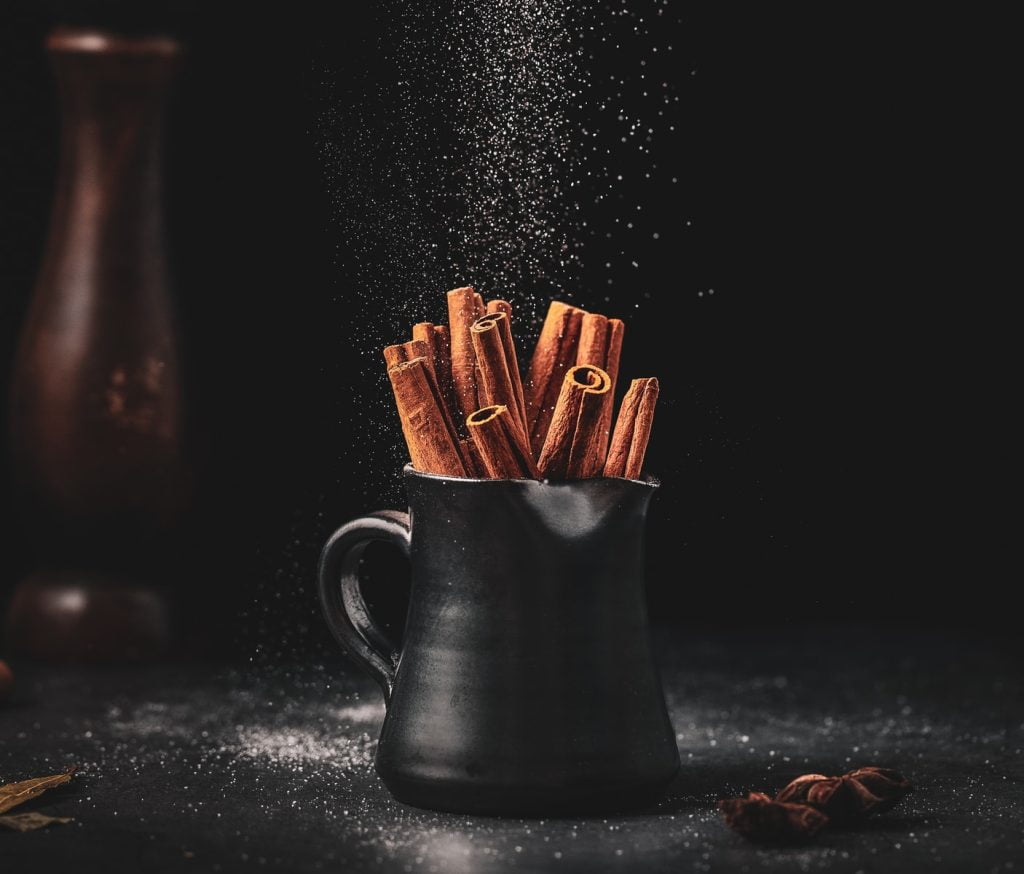Last Updated on February 23, 2023 by Marjon Ramos
Quick Facts About Cinnamon:
- Scientific name – Cinnamomum verum
- Origin – Sri Lanka
- Most commonly found in – Vietnam, Sri Lanka, and China.
- Average weight – 1.5 g – 2.5 g
While its true that cinnamon is not poisonous to rabbits, you should still refrain from feeding it to your rabbit because its high in calcium and has no nutritional benefit to your rabbit.
In the case of powdered cinnamon, inhaling it could irritate your rabbit’s lungs and could lead to difficulty breathing, pain, and irritation.
If your rabbit accidentally ate a little bit of cinnamon, just observe their poop, urine, and behavior for any changes.
If you’re worried because your rabbit ate a lot, you should call your veterinarian for a proper medical advice.
Now that I’ve given you the gist of the article, read on as I explain in more detail why rabbits can’t eat cinnamon:
Table of Contents
Would rabbits intentionally eat cinnamon?

Yes, your rabbit would likely get curious and take a bite of cinnamon if they ever get a chance.
I’ve personally never witness my rabbits eat cinnamon but a lot of people from rabbit communities have reportedly seen their rabbits eat cinnamon and cinnamon flavored products:
So I just got home from school and saw that my brother left his door open. My rabbits are free to roam the hallway and will run into his room if he leave the door open. I went in his room to look for one of my rabbits and I saw a cinnamon bun on the floor with little bunny bite marks all over it.
u/Cyanide_Skiesx – Reddit
As you can see, rabbits would likely eat cinnamon if you left it unattended. Make sure to not let never leave cinnamon or cinnamon flavored products to places your rabbit could reach.
Risk of overfeeding cinnamon to rabbits.
While its true that cinnamon is not toxic to rabbits, feeding them a lot of it could lead to health problems.
Here are some of the risks associated with feeding your rabbits large amounts of cinnamon:
Diarrhea
Diarrhea in rabbits is often caused by the wrong diet or when the diet is changed too fast.
Feeding your rabbit large amounts of cinnamon would check those two boxes I mentioned.
I just want to add that diarrhea (a life-threatening condition) is often confused with uneaten cecotropes (which can be fixed by the right diet) in rabbits.
You can tell the difference between uneaten cecotropes and diarrhea by looking at your rabbit’s poop.
Rabbits that only have uneaten cecotropes would still produce solid poop pellets, while diarrhea would not.
Uneaten cecotropes
Soft uneaten cecotropes are also possible when rabbits are eating large amounts of cinnamon instead of hay.
This could lead to softer cecotropes due to the lack of fiber in your rabbit’s diet.
Healthy alternative to cinnamon as treats.
Here are some alternatives that you can give to your rabbits one to two times per week as a treat:
- Melon
- Nectarine
- Apple (remove seeds)
- Banana
- Papaya
- Peach
- Blueberries
- Blackberries
- Pear
- strawberries
- Raspberries
- Cranberries
- Pineapple
- Plum
- Watermelon
- Cherries (remove seeds)
- Grapes
- Orange
FAQ (Frequently Asked Questions)
Should you panic if your rabbit eats a little bit of cinnamon?
No, just observe your rabbit for any changes in their poop, urine, or behavior. Cinnamon is not poisonous to rabbits, they would need to eat a lot of it to affect their health.
You should also feed your rabbit a lot of hay to help push out any unwanted stuff out of their gut since fiber is the one that induces movement in their gut.
What to do if your rabbit ate cinnamon?
Observe your rabbit’s behavior and poop for any changes.
You should also feed them a lot of hay.
The extra fiber would help clear out what’s in their gut.
If you notice any changes in their poop or behavior, consult a veterinarian immediately.
Conclusion
Cinnamon is not toxic to rabbits so your rabbit accidentally eating a bit of it is not a cause of concern.
If you noticed any changes in their poop, urine, or behavior after accidentally eating cinnamon, call your veterinarian for a proper medical advice.
Cite this article
Sources
